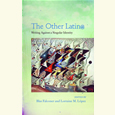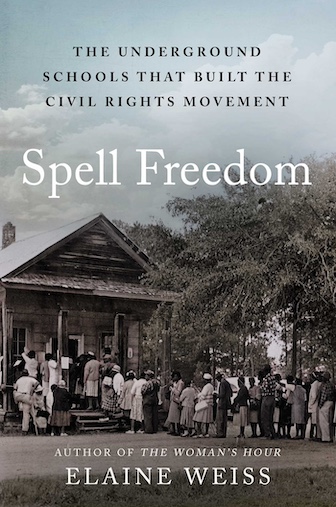Only Time and Light Will Do the Job
Thunderstruck, Elizabeth McCracken’s first story collection in two decades, elegantly illuminates the interstices of love and loss
In a recent interview with Publisher’s Weekly, Elizabeth McCracken remarks, “Humor reminds you, when you’re flattened by sorrow, that you’re still human.” The cleverness with which McCracken dispenses her wit alongside experiences of searing loss and aching loneliness make the stories in her new collection, Thunderstruck, resonate with both the inevitability of grief and the necessity of surviving it by any means necessary.
Readers familiar with McCracken’s fiction will be pleased to discover that her penchant for memorably quirky characters and diverse settings has not diminished, nor has her gift for vividly lyrical observations and terse, dry, understated humor. Take, for instance, the opening lines of the first story of the collection, “Something Amazing”:
 Just west of Boston, just north of the turnpike, the ghost of Missy Goodby sleeps curled up against the cyclone fence at the dead end of Winter Terrace, dressed in a pair of ectoplasmic dungarees. That thumping noise is Missy bopping a plastic Halloween pumpkin on one knee; that flash of light in the corner of a dark porch is the moon off the glasses she wore to correct her lazy eye. Late at night when you walk your dog and feel suddenly cold, and then unsure of yourself, and then loathed by the world, that’s Missy Goodby, too, hissing as she had when she was alive and six years old, I hate you, you stink, you smell, you baby.
Just west of Boston, just north of the turnpike, the ghost of Missy Goodby sleeps curled up against the cyclone fence at the dead end of Winter Terrace, dressed in a pair of ectoplasmic dungarees. That thumping noise is Missy bopping a plastic Halloween pumpkin on one knee; that flash of light in the corner of a dark porch is the moon off the glasses she wore to correct her lazy eye. Late at night when you walk your dog and feel suddenly cold, and then unsure of yourself, and then loathed by the world, that’s Missy Goodby, too, hissing as she had when she was alive and six years old, I hate you, you stink, you smell, you baby.
What unfolds after that, however, is not a comedy but a deeply strange and tragic tale of the aftermath of a child’s death from disease. Grief has transformed the girl’s mother into a recluse imagined to be a wicked witch by the neighborhood children, whose curiosity about her leads to a sublimely shocking encounter.
Similarly peculiar situations and protagonists can be found in a number of the collection’s other stories. “The House of Two Three Legged Dogs” introduces Tony, a bankrupt expatriate American in Paris with a proclivity for collecting animals—among them a pair of strange birds and the titular dogs. The story follows Tony through a variety of encounters with wacky characters in his quest to find his dissolute son, whose alcoholism—enabled, his father knows, by his own lifestyle—has led to a terrible betrayal. “Some Terpsichore” is a melancholy reflection on an abusive relationship between a warbling nightclub singer and her singing saw-playing boyfriend. In “Peter Elroy: A Documentary by Ian Casey,” a dying man comes to visit a long-estranged friend who once wrecked his life by deceiving him into making himself the subject of a film in which he came to embody the arrogance and narcissism of Reagan-era Wall Street. “Nobody felt pity for an asshole, so that’s what he chose,” McCracken writes of Peter, who was unfairly exposed but not exactly misrepresented. “He hated pity, though now it was the medium he lived in, a kind of emotional aspic he was too weak to punch aside.”
 Despite the striking originality and vividness of the collection’s more idiosyncratic characters and scenarios, however, Thunderstruck’s strongest stories largely eschew eccentricity, employing unsentimental, clear-eyed realism to disturbing effect. In “Property,” an academic returns from abroad after his wife’s death to resume his career. In “Juliet,” for instance, employees of a small-town public library struggle to come to terms with the horrific murder of a patron. When they learn that a local boy has been arrested for the crime, they call up his library record, searching for clues to his motivation: “We weren’t supposed to do that, of course. We were supposed to be bound by ethics and privacy, but it felt as if we could break them,” McCracken writes, “the way that cannibalism, in certain extreme cases, is acceptable.”
Despite the striking originality and vividness of the collection’s more idiosyncratic characters and scenarios, however, Thunderstruck’s strongest stories largely eschew eccentricity, employing unsentimental, clear-eyed realism to disturbing effect. In “Property,” an academic returns from abroad after his wife’s death to resume his career. In “Juliet,” for instance, employees of a small-town public library struggle to come to terms with the horrific murder of a patron. When they learn that a local boy has been arrested for the crime, they call up his library record, searching for clues to his motivation: “We weren’t supposed to do that, of course. We were supposed to be bound by ethics and privacy, but it felt as if we could break them,” McCracken writes, “the way that cannibalism, in certain extreme cases, is acceptable.”
In “Thunderstruck,” the title story, Laura and Wes, a youngish middle-class couple with two young daughters, awake one night to find a policeman at the door holding the wrist of their eldest, twelve-year-old Helen, who has snuck out to attend a nitrous-oxide party. After putting Helen to bed, Wes rather stunningly decides to take the family to Paris for a five-week vacation in the hope that “a jolt to Helen’s system before school started again in the fall” will be just the right thing to cure their wayward daughter of her recklessness. “The city would be strange and beautiful, as Helen herself was strange and beautiful,” the parents muse. Things seem to work out swimmingly at first: Helen reverts to a brighter disposition, and the family spends their days sightseeing and enjoying the city’s famed culinary delicacies. But a persistent dread underlies the bucolic scenes of familial happiness, leading up to a devastating conclusion.
“In order to wake up every morning, thought Wes, he’d convinced himself of a lot of things that weren’t true,” writes McCracken, exposing the sad truth underlying much of grief. She leaves open the question of whether or not a redemptive illusion is preferable to an inescapably tragic truth.

Ed Tarkington holds a B.A. from Furman University, an M.A. from the University of Virginia, and a Ph.D. from the creative-writing program at Florida State University. His debut novel, Only Love Can Break Your Heart, is forthcoming from Algonquin Books. He lives in Nashville.


